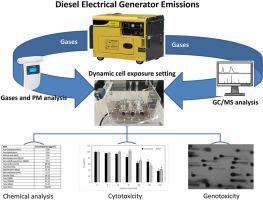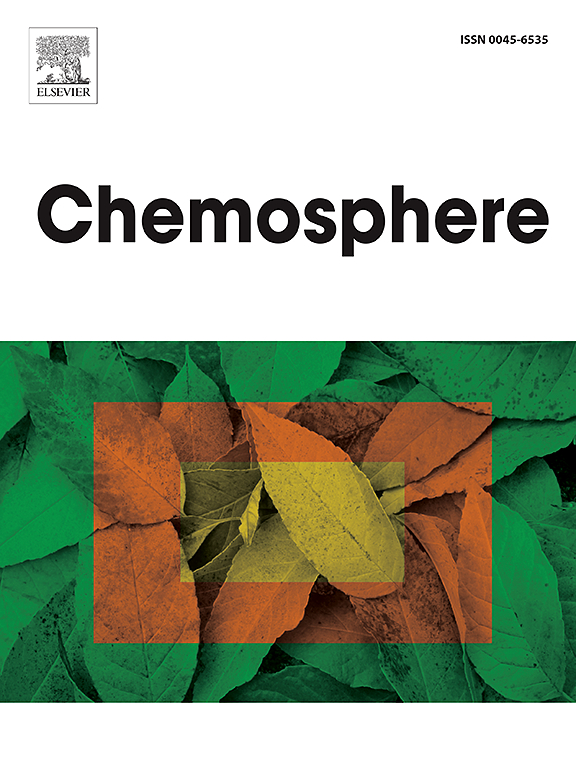Novel mobile methodology for on-site real time diesel generators fumes cytotoxicity assessment
IF 8.1
2区 环境科学与生态学
Q1 ENVIRONMENTAL SCIENCES
引用次数: 0
Abstract
Electricity is an essential and critical component for contemporary life. An energy crisis is emerging worldwide because electricity demand and consumption exceeds production capacity. Lebanon a country that has suffered from consecutive wars in addition to a crippling financial crisis lacks the capacity to provide 24-h electricity supply. This led to private operators stepping in to overcome the electricity shortfall using diesel generators. These private entities generated electricity using diesel power generators without proper governmental legislative emissions controls. In this study, the generated emissions from diesel generators were assessed for various gases and Polyaromatic Hydrocarbons (PAH)s. The biological assessment was conducted using a novel designed system (based on a dynamic in vitro methodology and human derived immortalized cell cultures) deployed on site to assess diesel generator emissions cytotoxicity. The emissions were collected, chemically profiled, and biologically assessed for toxicity, genotoxicity, and apoptotic potential. The results indicated a dose cytotoxicity along with significant DNA damage and apoptosis. The presented research findings highlighted the urgent need for development of national strategies to regulate, properly service and maintain diesel generators in Lebanon.

现场实时柴油发电机烟气细胞毒性评估的新型移动方法
电是当代生活必不可少的重要组成部分。由于电力需求和消耗超过了生产能力,世界范围内正在出现能源危机。黎巴嫩是一个连续遭受战争和严重金融危机的国家,缺乏提供24小时电力供应的能力。这导致私营运营商介入,利用柴油发电机来解决电力短缺问题。这些私人实体使用柴油发电机发电,没有适当的政府立法排放控制。在本研究中,对柴油发电机产生的各种气体和多芳烃(PAH)进行了评估。生物学评估是使用一种新型设计的系统(基于动态体外方法和人类衍生的永生化细胞培养)进行的,该系统部署在现场,以评估柴油发电机排放的细胞毒性。收集排放物,对其进行化学分析,并对其毒性、遗传毒性和凋亡潜能进行生物学评估。结果表明,小鼠具有一定剂量的细胞毒性,并伴有明显的DNA损伤和细胞凋亡。所提出的研究结果突出表明,迫切需要制订国家战略,以便在黎巴嫩管制、适当维修和保养柴油发电机。
本文章由计算机程序翻译,如有差异,请以英文原文为准。
求助全文
约1分钟内获得全文
求助全文
来源期刊

Chemosphere
环境科学-环境科学
CiteScore
15.80
自引率
8.00%
发文量
4975
审稿时长
3.4 months
期刊介绍:
Chemosphere, being an international multidisciplinary journal, is dedicated to publishing original communications and review articles on chemicals in the environment. The scope covers a wide range of topics, including the identification, quantification, behavior, fate, toxicology, treatment, and remediation of chemicals in the bio-, hydro-, litho-, and atmosphere, ensuring the broad dissemination of research in this field.
 求助内容:
求助内容: 应助结果提醒方式:
应助结果提醒方式:


